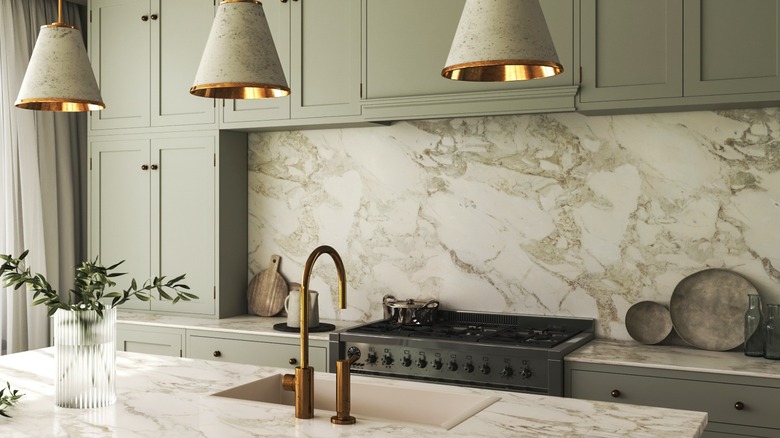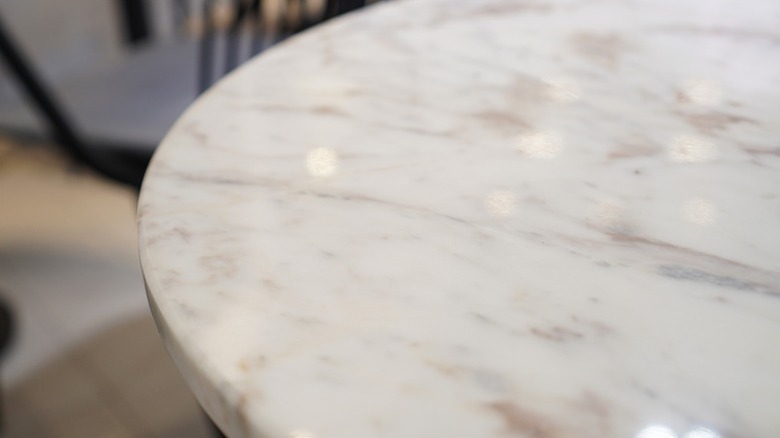Painting Your Faux Marble Countertops Is A Major Kitchen Design Mistake. Here's Why
Nothing screams "I've got my life together" like having a beautiful kitchen. No matter the chaos happening inside, an aesthetically pleasing and efficient workspace makes cooking meals and doing dishes a lot more enjoyable. You'll be spending a lot of time using the countertop: a space to prepare food, slide around pots and pans, and sanitize constantly. This space needs to be as functional as it is fashionable. Many people are drawn to marble for these reasons, making it expensive to purchase and install, so why not DIY it with paint?
There are a couple of things to consider if you'd like to create a faux marble countertop in the kitchen. First, you've got to embrace the "faux" of it all. Similar to how a leatherworker can spot a knock-off Gucci purse, a trained eye will know by look or feel that the counters aren't real marble. There's nothing wrong with recreating the look of expensive products for an affordable price, but it's just worth knowing that painted marble is never going to be a 100% imitation of the real thing. A smudged-up countertop can also depreciate the value of your home when selling at a later date.
Painting realistic marble is harder than it looks
The hardest part of painting marble by hand is recreating the natural randomness of the patterns that flow and groove within the stone. Marble forms in the earth through heat and pressure, developing imperfections from the minerals around it. Those little flaws are exactly what make it so stunning. Skilled painters train to replicate this authenticity by learning to imitate that randomness on purpose. Switching up the thickness and thinness of the lines, adjusting their values, and knowing which parts should blend, blur, or stay straight are all part of the process.
It's worth doing a test run of faux marble before committing to the whole countertop. Home improvement stores like Lowe's and Home Depot sell cheap squares of wood for around $5 that you can sand down and paint to get an idea of the final result. On the same note, purchase a sample size of paint before splurging on the whole bucket. If you're not satisfied with the mini, then the big version might not make for the kitchen of your dreams.
Another issue with faux marble countertops is that they can be prone to damage from scratching and certain chemicals. Kitchen countertops require frequent sanitation, especially when handling raw meat and other biohazards. Some antibacterial cleaners are harsh enough to degrade the countertops you worked so hard to paint and finish. The best kitchen countertop materials to stick to are granite and quartz — tough and gorgeous on their own.

